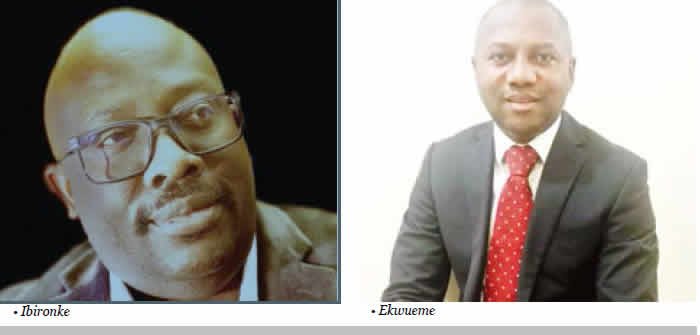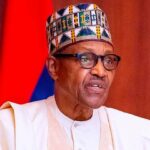
GRACE EDEMA writes about the implication of ASUU declaring an indefinite strike and solutions to the incessant strikes
As the Academic Staff Union of Universities contemplates between an indefinite strike or an extension of its ongoing strike, some Nigerian professors across the world have said declaring an indefinite strike will create a doomsday for the country and will lead to an increase in the rate of university dropouts.
The PUNCH had reported that ASUU National Executive Council started its meeting on Sunday so as to take a decision on government’s insensitivity over its demands and plight of lecturers.
Meanwhile, on August 16, 2022, at a meeting where Federal Government’s Nimi Briggs committee and ASUU were expected to sign the union’s demands, however, ended in deadlock.
At the meeting, the FG insisted that it would not pay the backlog salaries of the lecturers while they were on strike.
National president, ASUU, Prof Emmanuel Osodeke, told our correspondent that since then, the FG had not made any effort to contact the union to negotiate further and sign their requests so that the crisis could end and the strike be called off.
ASUU commenced its ongoing strike on February 14, 2022, after the Federal Government refused to meet some of its demands including, the release of revitalisation funds for universities, renegotiation of the 2009 FGN/ASUU agreement, release of earned allowances for university lecturers, and deployment of the UTAS payment platform for the payment of salaries and allowances of university lecturers
But speaking in an interview with our correspondent, a Professor Emeritus, Art & Art History, Miami University. Oxford, dele jegede, maintained that the FG and ASUU should quit being deceptive, saying both ASUU and FG would not be applauded if an indefinite strike was declared.
He said, ‘‘Declaring indefinite strike creates a doomsday scenario from which neither ASUU nor the country will benefit. It is like the tunnel at the end of the light.’’
Also, a Professor of English, Rutgers University, New Jersey, Olabode Ibironke, opined that should ASUU declare an indefinite strike, the nation would experience another wave of brain drain and an increase in the student dropout rate.
Ibironke added, ‘‘Many academics are already leaving the universities. Many parents will also withdraw their children from public universities. There will be a spike in the student dropout rate. An indefinite strike will further truncate the academic calendar and leave the universities in the backwaters. It will be hard for the country to recover from these damages to the system and society.’’
Without a doubt, the incessant strikes by ASUU and other unions in the university system would always have a negative impact on the education system, the quality of its product, and the nation at large.
However, Ibironke, reiterated that the United States of America where he lectured could not afford school closure and as such, it would always agree to the demands of professors in good faith.
‘‘Strikes directly result from a breakdown in negotiations. To put this in perspective: every three years or so, my union here, the American Association of University Professors, the equivalent of ASUU, enters into collective bargaining with the University administrators, who are, in our case, because of the autonomy of the university, the employer. They cannot afford the school’s closure, so they always come to a good faith agreement,’’ he said.
On the contrary, jedege stressed that the solution to incessant ASUU strikes was a ‘no work no pay’ system.
‘‘ASUU reels out metrics about what professors in select countries earn. But they often are quiet about expected deliveries and national/international rankings. The solution to incessant ASUU strikes lies in a ‘no work no pay’ system, period. All strike issues should be handled by Industrial Arbitration Court,’’ jegede said.
While making suggestions on what the government should do to move the tertiary education system forward, Ibironke emphasised that the Nigerian government should adhere to global standards of higher education, adding that they should take the lead in partnering with university teachers to proffer solutions to the university challenges.
He said, ‘‘They should take the lead in partnering with university teachers in developing a plan to improve the status and conditions of our public universities to bring them to the standard of their peers in other parts of Africa and elsewhere. Going by the United Nation’s recommendation, at least 20% of the national budget should be devoted to education instead of the current 5%. The question of genuine autonomy of the universities must also be part of any meaningful way forward.’’
Jegede added that funding education at the tertiary level should not be left to the government alone, explaining that parents may have to supplement government subventions while universities must be creative in establishing endowments.
‘‘Freedom, as the saying goes, is not free. Parents may have to supplement government subventions while universities must be creative in establishing endowments and sourcing for grants for student scholarships and faculty development. When students are invested in their education, they will be empowered to hold their universities accountable for any avoidable or unnecessary hitches to the academic calendar.’’
He further advised the government to place an indefinite moratorium on the establishment of new universities at the federal level, saying the pursuit of academic rigor should be higher than the number of universities.
‘‘There should be a national ranking system that rewards excellence in academic institutions. Universities should be ranked on the basis of their performance in research and scholarship, teaching excellence, and community service,’’ he said.
Also speaking in an interview, a Consultant Urological and Robotic Surgeon, at GlanClwyd Hospital in Wales, United Kingdom, Prof. Kingsley Ekwueme, stressed that a complete overhaul of higher education was needed, adding that the current funding for higher education in Nigeria was grossly inadequate.
‘’In real terms, the 5.4% allocated to education is inadequate. It should be much higher than that. If you compare that to the UK where more than 13% of the GDP is committed to education. The political class must recognise the importance of education to the growth of our country and pay special attention to it.
‘‘The system of funding University education in Nigeria needs a complete rethink. In my opinion, there is an over-reliance of the system on the government. In the UK for example, there has been a progressive decline in government direct funding over the last 10 years. During that time, fees for higher education have gone up. Government guarantees student loans for its citizens at an interest rate that is competitive. These loans are then repaid upon gaining work. I believe that funding constantly is an issue since the needs keep going up, especially with high inflation as in Nigeria.’’
Ekwueme also lamented that the quality of research coming out of Nigerian universities had drastically gone down over the years.
‘‘Research is the bedrock of the university and the country’s education system. The quality of research coming out of Nigerian universities has drastically gone down over the years. ASUU needs to be depoliticised. Excellence needs to be recognised and remuneration tied to achievement of excellence in teaching and research. It seems to me that ASUU members need to look inwards as well because they are not insulated from the ills of the general polity,’’ he added.





